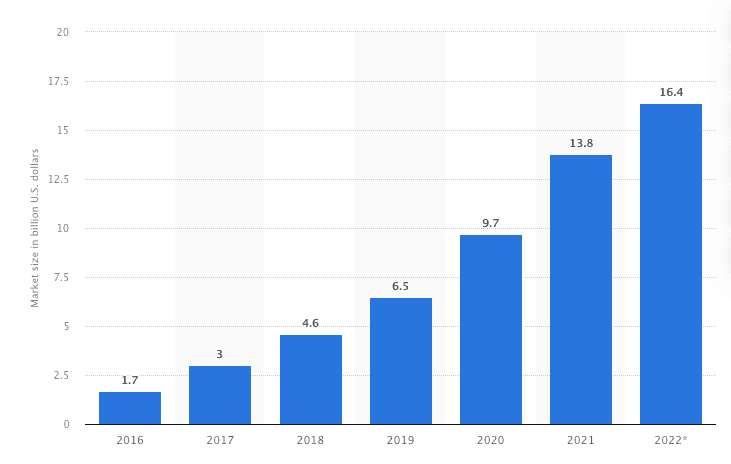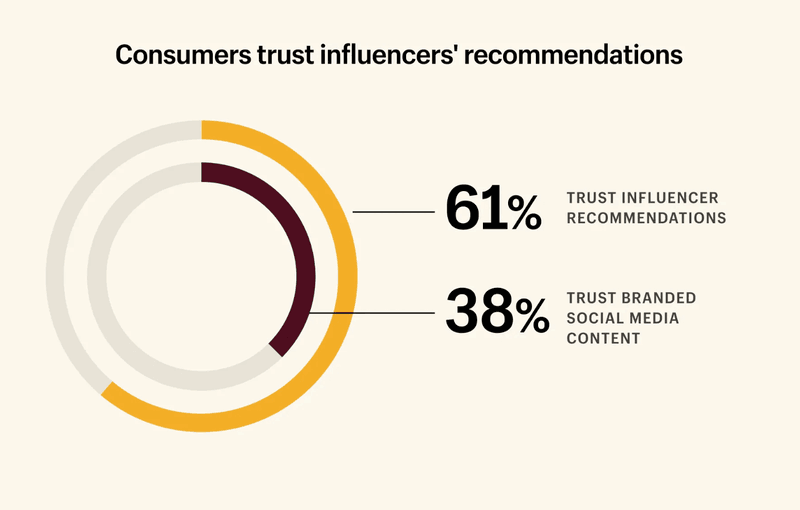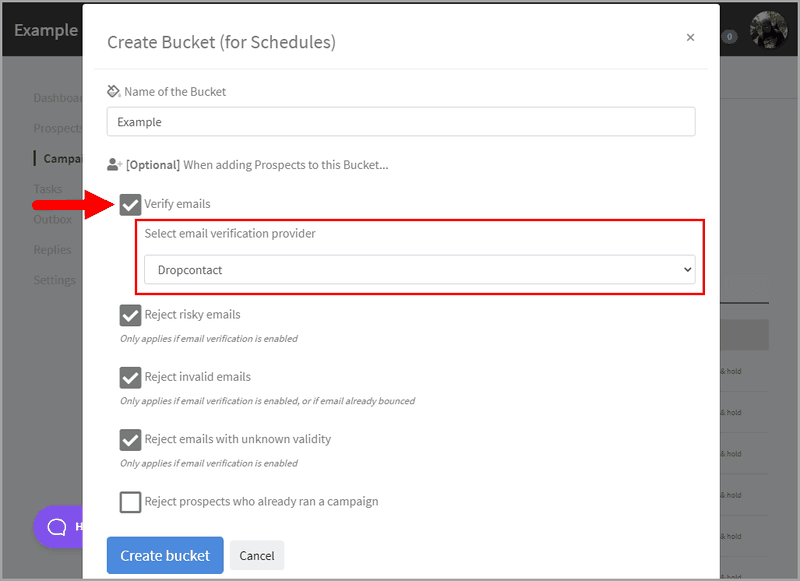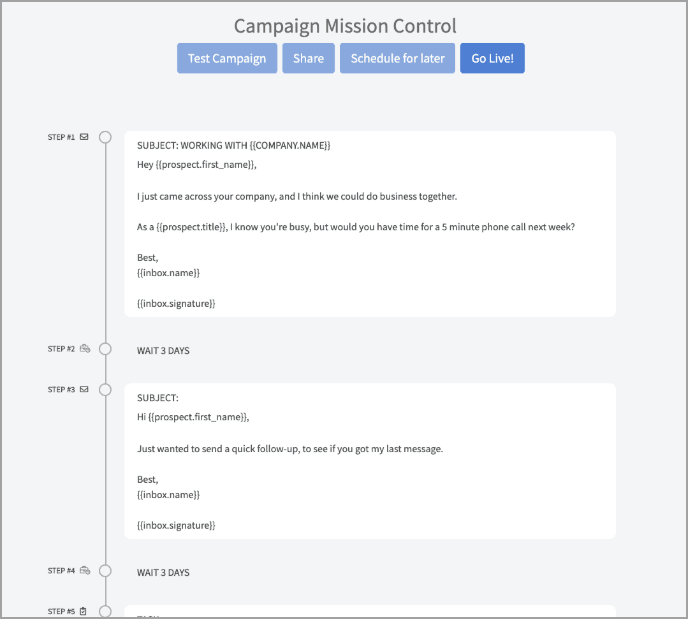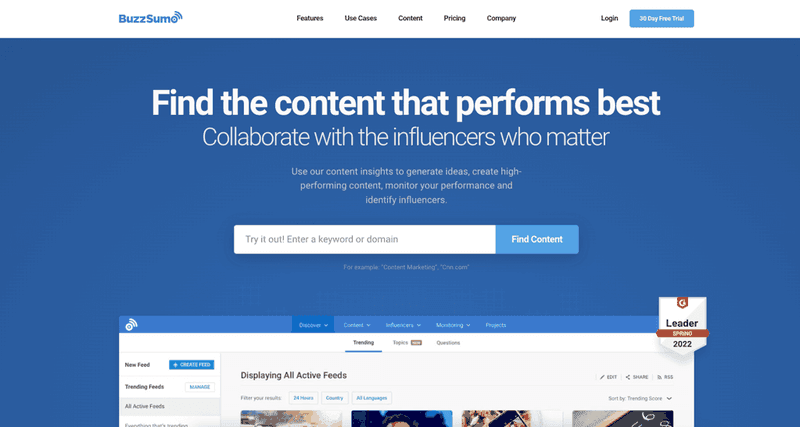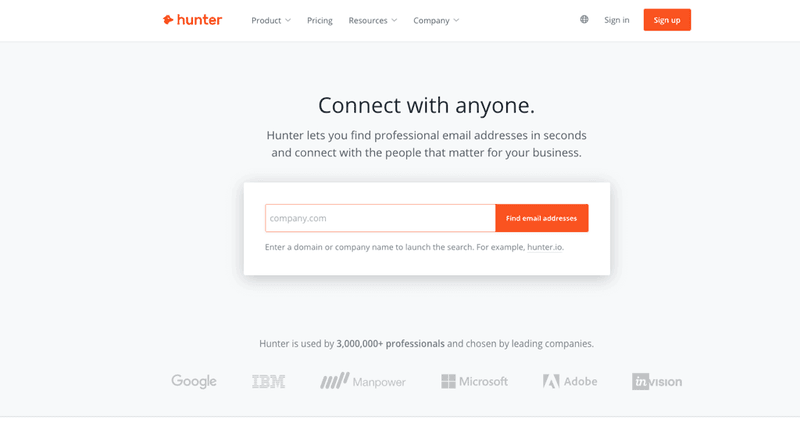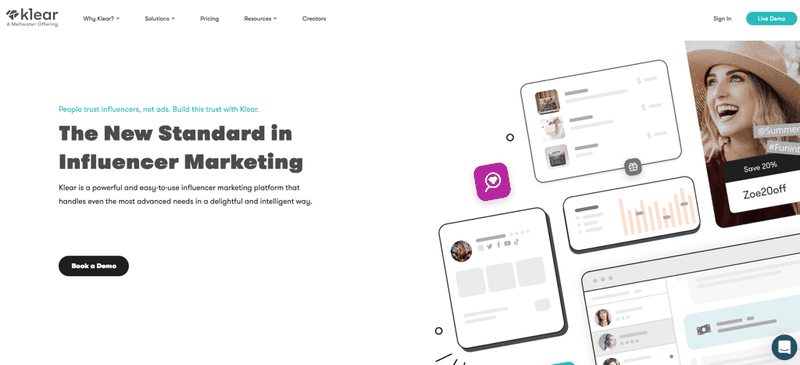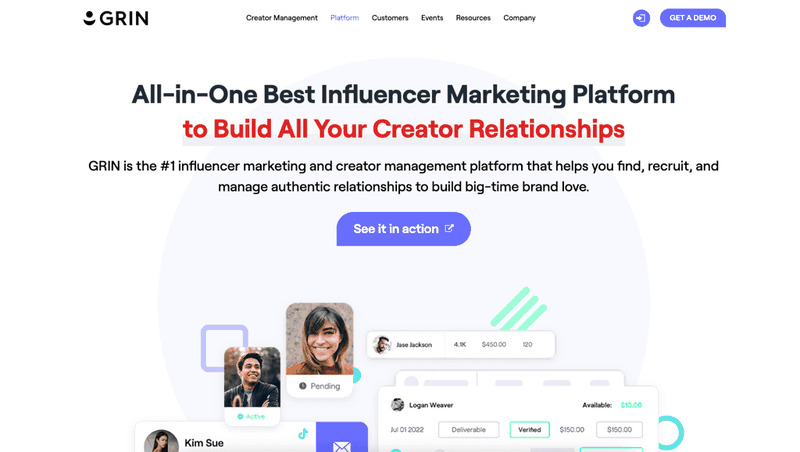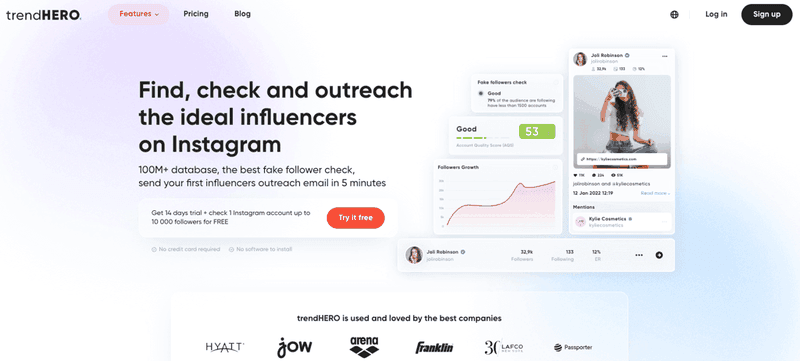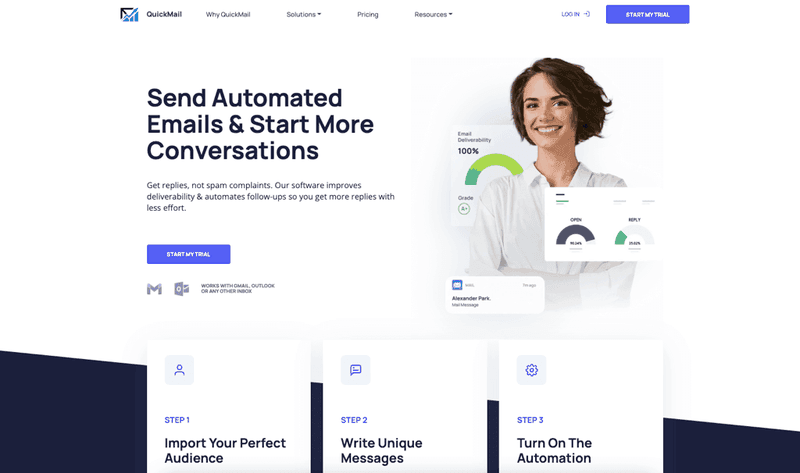Influencer Outreach: How to Reach the Right Influencers for Your Brand in 2025
Leverage the power of influencer outreach with this step-by-step guide on identifying, contacting, and building relationships with influencers for your brand.
Updated November 7, 2024.

An effective influencer outreach process makes it easy to start conversations with relevant influencers and secure ptlacements for your brand. But, where do you start? How do you connect with the right influencers to make the magic happen?
In this guide, I’ll walk you through everything you need to know about influencer outreach, including what it is, five best practices to improve your results, and the step-by-step process you can follow to start your influencer outreach.
Let’s dive straight in.
What is influencer outreach?
Influencer outreach is the process of identifying relevant people who can help you promote your company and then reaching out to them to start a conversation.
It's a marketing strategy businesses use in B2B and B2C industries that is still on the rise. If you can get in touch with someone with a similar audience to your target customer and work with them to promote your company, it’s a powerful way to generate awareness and attract new customers to your brand.
The influencer marketing industry continues to grow and is valued at over $16 billion.
If you can use the channel to your advantage, it can act as a powerful growth lever.
5 Influencer outreach best practices
Here are five rules to follow when setting up your influencer marketing strategy.
1. Have a clearly defined influencer outreach strategy
Before you start any influencer marketing campaign, you need to create a clear strategy that defines your goals and how to achieve them. If it’s your first time creating an influencer outreach strategy, keep this simple.
First, outline your objective. This could be as simple as:
“Get our product included in five YouTube videos by influencers in our niche with 10,000+ subscribers.”
Then, outline the activities and metrics you’ll take to get there. For example:
- Source a list of 100 relevant influencers to reach out to
- Send a personalized cold email outreach to every influencer on your list
- Aim for a 20% reply rate
- Confirm deals within 60 days of contact
The exact process you’ll follow will depend on your unique business and campaign, but these ideas will give you a starting point. Have a clear strategy and make sure your team knows their main priorities and gives you a way to evaluate your results.
2. Identify the right influencers for your campaign
Your campaign’s success depends on how well your influencers match your target audience. To find the right influencers for your business, use prospecting techniques like:
- Referrals: Think of someone who can connect you with a relevant influencer, and ask them to refer you. This is effective because people generally trust that a referral will be relevant, so you’ll see a high response rate from influencers.
- Social media prospecting tools: Use a tool like SparkToro. Type in your industry or niche to find relevant influencers in the niche that your audience follows and engages with.
- Use an influencer marketplace: You can also use influencer tools like Grin or Klear to find the right influencers and reach out to them on the platform. These influencer marketing platforms have advanced filters and can save you hours of time in finding the right influencer.
- Ask your customers: Your customers are your best source for influencer research. You can run a survey asking them what accounts they follow to stay up to date with their industry, and include questions on the different accounts they follow across different mediums.
- Look up top influencer lists. For example, we got this list of the top Amazon influencers, and other sites have lists that are broken down by industry, audience size, etc.
Once you have a long list of potential influencers, go through each one and shortlist them. Make sure each person you reach out to needs is highly relevant to your audience and market.
3. Focus on relationships
it’s critical to focus on relationship-building and making that personal connection with the influencers you work with because your best results won’t come from your first campaign. No matter how long you spend planning, there will always be an improvement you can make for next time.
Do this by:
- Start by reaching out with fully personalized outreach
- Prove that you care about providing value to their audience
- Work with them to build a pitch that works for their audience
- Avoid making the conversation transactional
If you’ve built a strong relationship with the person you’re working with on your influencer campaign and both parties are benefiting from the partnership, it’ll be easy to reach out to them again to pitch them on another campaign.
Have a good relationship with your influencer and they will be happy to provide feedback and work closely with you to get the best results from your campaigns.
4. Get influencers involved in your strategy
Even if you’re certain that the product or service you’re promoting through your influencer strategy is a fit for their audience, chances are, they’ll be able to sell it to their audience better than you can.
The reason is simple: their audience trusts them.
So, how do you leverage that knowledge?
First, make sure to ask your influencer partner if they can create their own sponsored content promoting your product or service.
For example, if the influencer is a podcast host, you can ask them to read out your advertisement in their own words, rather than you sending them a pre-recorded script.
Research shows that 61% of consumers trust influencers' recommendations more than the 38% who trust branded content, so it’s a powerful way to improve your results.
Also, ask the influencer you’re working with for feedback on the product or service you’re promoting. They could have some great ideas on the best angle to use in your promotion and can help get clarity on how many clicks or sales you could expect to get from the campaign.
5. Evaluate your results and optimize
Once you launch the campaign, it’s time to track the results and optimize for the next time.
Look at metrics like:
- The response rate to your outreach
- The number of new website visits each influencer drove
- The number of new sales each influencer generated
- The total ROI of your influencer marketing campaign
Log your metrics in clear reports, and make it easy to see whether or not a campaign is a success.
If it was successful, you can double down. If you didn’t get the results you were aiming for, you can use your metrics to inform your next steps and inform changes to your campaigns in the future.
In the next part of this article, we’ll show you the step-by-step process of how to create an influencer outreach campaign.
How to create an influencer outreach campaign
Step 1. Choose your outreach strategy
Defining your outreach strategy is key to success.
At this stage, sit with your team and decide:
- Which social media channels will you run outreach on?
- What is your north star metric for your outreach?
- Who on your team needs to be involved?
- What budget do you have available?
- Which tools will you need?
This will largely depend on the types of influencers you’re targeting. For example, micro-influencers will require less outreach and formality to start a partnership while celebrities and mega-influencers will need more hand-holding and a white glove treatment.
It also depends on your niche. For example, if you’re running influencer marketing campaigns for eCommerce products, you might reach out to influencers on platforms like Instagram.
On the other hand, if you’re targeting B2B influencers, you’ll stick to cold email outreach and will need a different set of tools.
Step 2. Find influencers and their contact details
Once you have a list of influencers you want to work with, you’ll need to find their contact details.
Many influencers will list their contact details on their website or social accounts. If you can’t find them, you can use email-finding tools like ZoomInfo to speed up the process.
Some creators are represented by influencer marketing agencies, and in that case, you’ll need to get in touch with the agency before being referred to the right influencer.
Once you have a list of people to reach out to, you’ll need to verify their email addresses.
This adds an extra step to the process, but it’s worth it. It will ensure that your outreach emails never bounce back due to an unverified email or a typo in the address. So get your influencer list into a Google Sheet and plug it into an email verification tool.
You can use standalone email verification tools or the built-in email verification that some cold email platforms include.
For example, QuickMail lets you verify email addresses automatically before sending an email. This ensures you maintain a low bounce rate and don't encounter email deliverability problems.
Step 3. Create your offer
Next, you’ll need to plan out your offer.
This involves everything that you’ll include in your email pitch to influencers that you want to work with, such as:
- What product(s) you can send them
- The incentives you have available for the influencer
- Special discounts or coupons you can provide
- Creative assets or scripts to make the influencer’s job easier
The offer creation process needs to be iterative. Talk to the influencers you want to work with and find out what makes a partnership offer attractive to them. Then, use that information to tailor your offer in the future for anyone else you reach out to.
Step 4. Use influencer outreach templates
Once you have a list of influencers to reach out to and an offer that you know they’ll want to learn more about, it’s time to start your outreach.
There are a few best practices to follow:
- Always add personalization to every email template
- Use social proof to build trust with recipients
- Summarize your offer in a short sentence or two
- Focus your template on providing value to your recipient rather than only talking about your business
- Use a call-to-action that makes it easy to respond
Next, here at three effective influencer outreach templates to help you get started.
Influencer outreach template #1: The Introductory Email
Subject: Working with {{prospect.first_name}}?
Hi {{prospect.first_name}},
Saw that you were recently featured in [publication] and shared your expertise on running a successful eCommerce business - some great tips in there!
We run an eCommerce business selling to a similar audience to your followers. We’ve already worked with [similar influencer] and [similar influencer] and saw engagement rates of over 3% on the posts including our product.
Interested in having a quick conversation about working together?
Best,
{{inbox.name}}
Influencer outreach template #2: The Friendly Follow-Up
Subject: Working with {{prospect.first_name}}?
Hi {{prospect.first_name}},
One of our recent product launches generated $40,000+ in commissions for [similar influencer] who we worked with and their audience loved our product.
Would you be interested in a free product sample?
Best,
{{inbox.name}}
Influencer outreach template #3: Co-Promotion with a Notable Figure
Subject: Co-promotion with {{prospect.first_name}}?
Hi {{prospect.first_name}},
Congratulations on releasing your new course - it looks like a valuable resource for your audience!
We’re currently booking guests for our podcast episodes in Q1 and Q2. We have 11,000 B2B marketers that listen weekly, and you’d be getting your name and your new course in front of them.
Does that sound interesting to you?
Best,
{{inbox.name}}
These three influencer outreach template examples can all be customized to your unique strategy and the type of creator you’re reaching out to.
You’ll notice that all of them are personalized and concise, making it easy for your recipient to respond.
Step 5. Always follow up after no response
Our data found that 55% of replies to cold outreach come after a follow-up. It’s imperative if you want to maximize your reply rate.
A follow-up email gives you another chance to start a conversation and moves your email to the top of the inbox. It’s a standard feature in all good cold email tools.
Here are some best practices involved in sending reminder emails that get responses:
- The optimal number of follow-ups is three, based on data from 1.7 million campaigns analyzed in QuickMail.
- Keep your follow-up templates simple and focused on showing what you can offer your recipient.
- Avoid using the ‘bumping this email to the top of your inbox’ strategy. It doesn’t add value and is a recipe for being marked as spam.
- Switch your call-to-action to one that requires less commitment from the recipient. For example, ask them to let you know if it sounds like something they would be interested in rather than asking for a call.
Adding follow-ups to your campaign is a powerful way to boost your response rate – but if someone doesn’t reply after three to five follow-ups, remove them from your list as it means they’re either not ready to work with you, or not a fit in the first place.
Step 6. Track influencer outreach metrics and optimize
Once your influencer outreach campaign has been running for long enough to generate results, you need to evaluate your performance.
Here are some outreach metrics to track, and benchmarks to aim for:
- The average open rate for outreach emails is 44%
- The top-performing 25% of outreach campaigns see a 20% reply rate or higher
- Target a bounce rate of below 5% to avoid deliverability problems
- Friday is the best day for getting replies
When analyzing your metrics, consider getting as granular as you can. For example, rather than just looking at your overall reply rate, look at your positive reply rate.
On top of your positive response rate, look at your meeting booking rate and overall campaign conversion rate. Once you and your team know what results to expect from a campaign, you can forecast the future and plan ahead.
6 powerful influencer outreach tools
Here are some of our favorite influencer marketing tools to use for outreach.
1. Buzzsumo
Buzzsumo is an influencer outreach tool that helps you identify top influencers in your industry.
It lets you search for people who shared content about a specific topic and see data on the most popular influencers who have shared content on the topic. For each person, BuzzSumo will show you a detailed profile with information on their follower count, top topics, their most popular content, and more.
Pricing: there’s a free plan to try out the platform, and paid plans start at $79 per month.
2. Hunter.io
Hunter is an email-finding tool. You can use it in two ways.
First, you can visit a company website and it will show you a list of email addresses and people at that company. You can then choose the best person to contact. Second, you can enter someone’s name and company name, and Hunter will show their verified email address if it exists in the database.
There’s a standalone platform, and a browser extension to search for emails on platforms like LinkedIn while you’re prospecting for new influencers.
Pricing: you can search for 25 contacts per month for free, and paid plans with higher search limits start at $34 per month.
3. Klear
Klear is an influencer discovery platform with tools to help you find relevant influencers on channels like TikTok, Instagram, and YouTube. Once you define your audience, Klear will show you a curated list of potential influencer partners who you can reach out to within the app.
You’ll also see stats on their engagement levels on every platform they use, which you can use to personalize your strategy to each influencer. It’s one of the more expensive solutions out there, and you will need to schedule a demo for a custom quote.
4. GRIN
GRIN is an influencer management tool that helps you manage everything from influencer discovery, to paying out commissions.
Use the platform to identify relevant influencers, manage all of your communication and send direct messages to individual influencers. That means you can use it to send your initial outreach message, and track responses. Once you’ve confirmed that an influencer wants to work with you, GRIN can track the results of your campaign and even send payments when they’re due.
Pricing: available upon request.
5. trendHERO
trendHERO’s influencer search platform is packed with features to help you identify the best influencers for your brand and help you hit your marketing goals.
The platform focuses on improving the quality of your campaigns, and you can analyze influencers based on factors like their comment quality, engagement across different content types, and how often they’re being mentioned by other accounts.
Pricing: starts at $16.99 per month for the base set of features.
6. QuickMail
Cold email is one of the most effective channels for connecting with influencers because you have a direct line to a busy influencer’s inbox that they check throughout the day.
QuickMail helps you automate the process, without compromising on personalization. Once you have your list of target influencers, you’ll import them into QuickMail. From there, you’ll build your campaign, including personalized email templates and as many follow-ups as you need.
When you’re ready to launch your influencer outreach email campaign, it’ll be sent to your recipients on autopilot.
Pricing: starts at $49 per month, and you can use the email deliverability tools for free. There’s also a 14-day free trial so you can test it out for your campaign.
Takeaways
If you want to use influencer marketing to grow your business, you need to become an expert at outreach.
Once you’ve created your influencer outreach strategy, you’ll be able to start conversations with highly relevant influencers and be one step closer to securing features for your product or service.
The best practices and steps you’ve learned about in this guide will help you identify and reach out to influencers. From there, you’ll need to focus on building relationships and making sure the agreement works for both parties.
When you have a formula that works, you can scale up your influencer marketing efforts and start driving significant growth. Looking for an influencer expert? Find the perfect one on Mayple.
